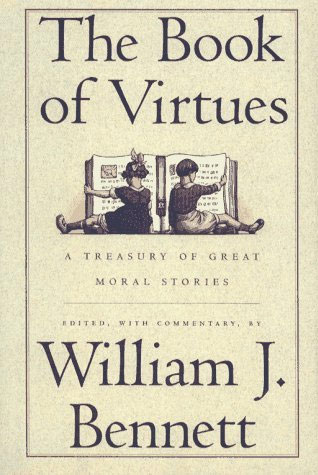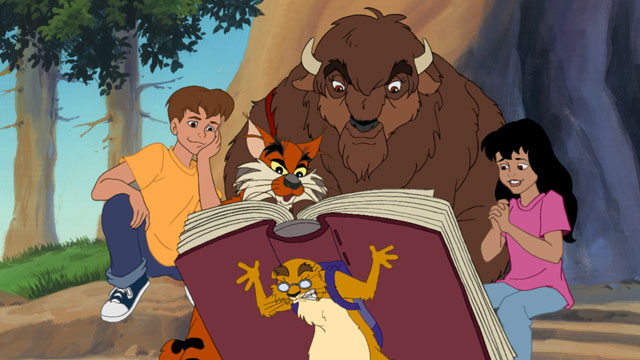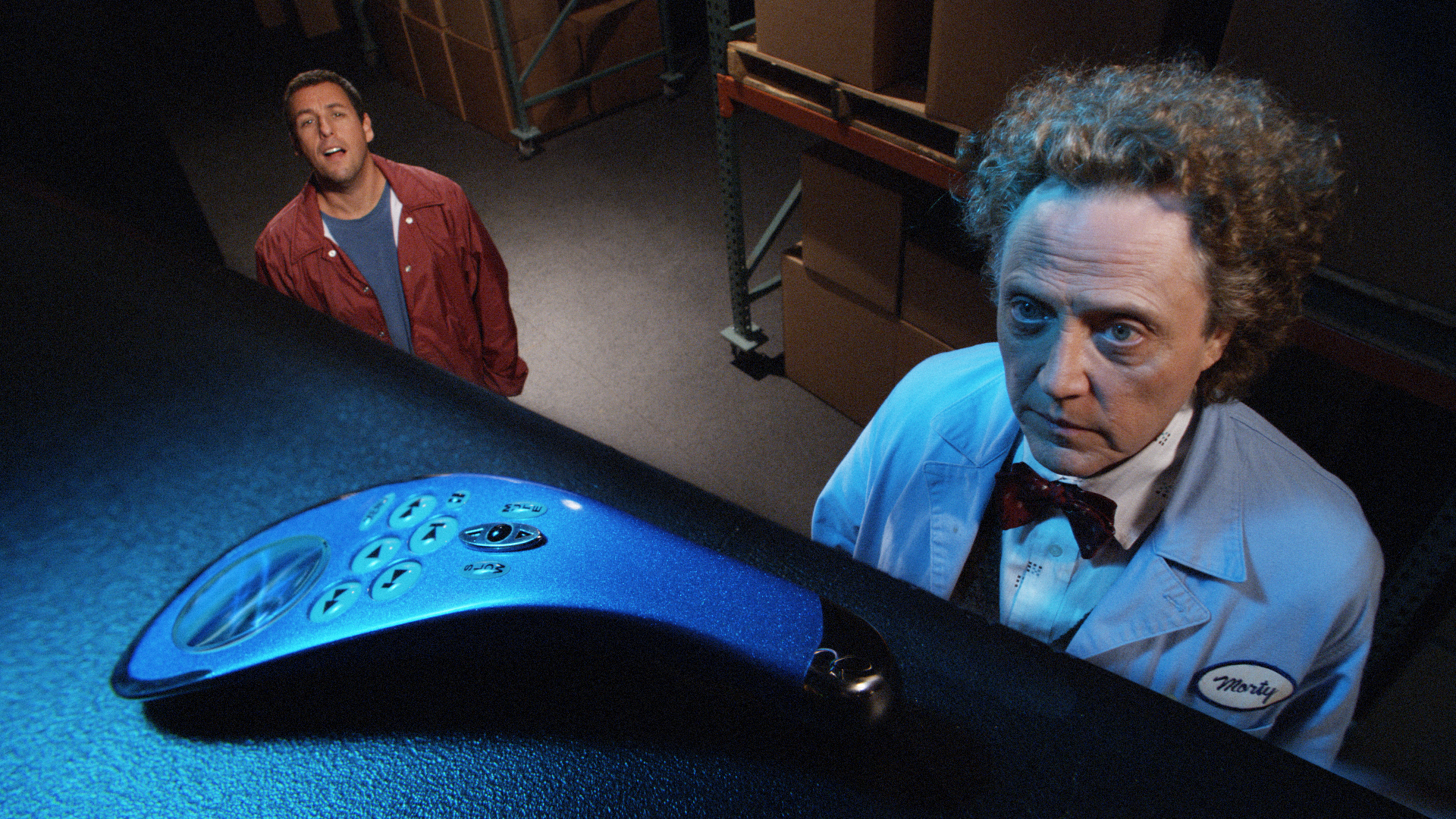Small-Screen 66 – #62: Adventures from the Book of Virtues
(PBS, 1996-2000)
I admit it. There’s a lot of PBS on this list. As I explained in the Creepy Classics Countdown last October, I never had cable as a child, so most of what I watched on TV up until about the age of 10 came from PBS. I did tune into the networks for cartoons on Saturdays and after school…but we’ll get back to that in a later post.
As I cautioned in my introduction, following TV series is considerably more difficult than watching any single given film. I have no doubt there are many fine shows I simply never committed to or even had access to. By necessity, this Countdown will reflect shows I’ve actually seen. So since I watched a lot of PBS, it follows that it would be represented prominently here.
But I’m also striving for variety. So, in the spirit of HONESTY, I have to admit that I axed yet another PBS series from this list to make room for today’s selection. Perhaps the exiled show will receive a mention elsewhere (an “honorable mentions” post isn’t entirely out of the question somewhere down the line).
Adventures from The Book of Virtues is an animated anthology series nominally adapted from The Book of Virtues, a collection of moral tales compiled by former Secretary of Education William Bennett.
Each episode revolves around a central “virtue” (honesty, self-discipline, generosity, etc.) and opens with one or both of the main human characters, Zach and Annie, failing to demonstrate said virtue in their day-to-day life. The two children visit a mysterious glade, where a quartet of sagacious, talking animals sets them straight by recounting a series of tales stressing the importance of the virtue in question. The children see the error of their ways, and return home new and improved. But don’t worry, by the next episode the Goofus-to-Gallant transformation has been undone, and Zach and Annie are back to being scumbags again.
In my brief review of The Weird Al Show this past December, I mentioned that the series was ruined by the “E/I” mandate that every episode must have a moral, and how, to accomplish this, the “Al” character started out each episode as a jerk so that he “had something to learn.” But in Book of Virtues, the model works much better. Despite being the “protagonists,” Zach and Annie simply provide a frame narrative, similar to the function of the Midnight Society in Are You Afraid of the Dark? — they’re there to introduce the stories, which are the real reason to watch the show.
Each tale is read by one of the animal narrators: Plato the bison, Aristotle the prairie dog, Socrates the bobcat, or Aurora the hawk (because I guess they couldn’t think of a female philosopher). The wise beasts are certainly well-read, and draw stories not just from Bennett’s original book, but also from biblical narratives, folk tales, and the mythology of various cultures. Some semi-historical yarns sneak in there too, such as the story of young George Washington and the cherry tree, or the tale of William Tell. Though the show only ran for 24 episodes in its original format (before returning, significantly retooled, after a two year hiatus), they managed to work in a wide variety of classic tales.
Though they’re just about all “good,” I found two stories in particular to be especially memorable. Actually, one isn’t even a full story, but rather a poignant, pensive moment which was tacked on to a longer, but less memorable story. At the beginning of “Rocking-Horse Land” (featured in the “Generosity” episode, S1E12), a young prince awakens on his birthday to find his room filled with presents. The most intriguing gift, apparently from the boy’s “fairy godmother,” is a magical toy which, when broken, becomes something else. The prince merrily smashes the toy again and again, and each time it transforms into a different kind of toy. But gradually the boy realizes that the magic toy represents an inherent conundrum: He can’t get an earlier iteration of the toy back, even if he prefers it to the toy’s current form. By the same token, he can never be sure he won’t like the next iteration MORE than the one he currently has. So he’s stuck, always wondering if he’s really content.
In the cartoon, this moment is glossed over (the toy turns into a balloon and flies away) and the main thrust of the story gets underway. But I’ve never forgotten the boy’s dilemma. That dilemma is surprisingly profound, and it applies beyond the story, to aspects of our lives such as where we live and what relationships we cultivate. We can never know if our situation is really the “best” one we could have. Maybe we could be leading happier, wealthier, “better” lives in another place, with different people. But if we start burning bridges, we might end up in a situation that’s much worse, and be left with no way to get back what we have now.
That’s heavy.
Another tale, “The Magic Thread” (“Self-Discipline,” S1E6) follows an impatient boy named Peter who wishes he could skip past the boring parts of life. A mysterious crone offers him an enchanted ball of thread, and tells him that every time he pulls the thread, he will jump forward in time. At first, he “jumps” to when he has a girlfriend. Then to when he’s done with school. Then to when he’s married. During the “jumped-over” time, Peter apparently operates on autopilot, but he has no memory of these spans. Nevertheless, he begins to use the ball more frequently, until he’s “jumping” any time he feels frightened or angry, or encounters some difficulty. When his children irritate him, he “jumps” to when they’re grown, only to realize he wants them back. Distraught by what he’s done, Peter gives the thread one final long tug, and finds himself in a graveyard, standing before the headstones of his wife and mother. The old crone appears, and Peter tearfully begs for, and receives, a Scrooge-style second chance. He awakens as a boy, having apparently been day-dreaming near the schoolhouse. A female classmate (in the future, his girlfriend and wife) says she’ll see Peter tomorrow, then leaves.
“Yes,” Peter muses, “Tomorrow. I can wait until then.”
Don’t wish away your lives, kids. Time flies far too swiftly on its own. Case in point: “The Magic Thread” first aired 18 years ago.
Take the bitter with the sweet, because dull or painful moments make us appreciate the good ones. And at any rate, they’re better than no moments at all. To quote Bob Ross once again,
“People tell me ‘Every day can’t be a good day.’ I tell them, ‘If you think not every day is a good day, try missing a few.'”
I’m actually not 100% sure what he means by “missing a few”…maybe Bob Ross had a cursed thread he never told anybody about.
Tidbit: Click, the movie about Adam Sandler acquiring a “universal remote” that actually controls the universe, totally lifted the “Magic Thread” storyline. But it also had Christopher Walken as the grim reaper, so I’m willing to overlook any shortcomings.
WARNING: Only read the following section if you are a voice-acting nerd, or wish to become one.
The cast of Book of Virtues is made up of the most prolific names in 90s’ voice-acting. These five or six people voiced your childhood. Seriously, check this out…
Annie and Aurora (and countless female characters in the stories) were voiced by Kath Soucie, whose voice credits include:
-Phil, Lil, and their mother from Rugrats.
-Linka, the wind Planeteer from Captain Planet
-Dexter’s mom on Dexter’s Laboratory
-Cubert Farnsworth on Futurama
And countless other background voices.
Zach is voiced by Pamela Adlon, better known as the voice of Bobby Hill from King of the Hill and the tomboy character Spinelli from Recess.
Plato is voiced by Kevin Michael Richardson, who voiced Captain Gantu, the antagonist in Lilo and Stitch, and now voices just about every cartoon character with a very deep voice (including recent interpretations of the Joker and the Shredder).
Aristotle (and countless male characters in the stories) are voiced by Jim Cummings, whose filmography is so extensive it’s almost mind-boggling.
-He is perhaps most recognizable as Pete, Goofy’s rival, but he’s also
-Winnie-the-Pooh
-AND TIGGER
-the Tazmanian Devil
-the cajun firefly in Princess and the Frog
-the cajun ferryman in Scooby-Doo on Zombie Island
-Bonkers, the cat-like star of early Disney Channel cartoon Bonkers
-Darkwing Duck
-Long John Silver in The Pagemaster
-the singing voice of Scar in The Lion King
-the singing voice of Rasputin in Anastasia
-both Chief Powhatan AND the medicine man in Disney’s Pocahontas
And on, and on, and on.
Socrates is voiced by Frank Welker, most recognizable as Fred from Scooby-Doo. But he also “voices” nearly every animated animal out there. As such, he has one of the longest filmographies of any actor working today. He was:
-Abu in Aladdin.
-Ma-Ti’s monkey Suchi on Captain Planet
-Nibbler on Futurama (both his “animal” and intelligible voices)
-Dr. Claw on Inspector Gadget
-Megatron on Transformers
Etc., Etc., Etc.
And that’s not even to mention all the GUEST voices featured in the stories themselves. To name just one, Robert Paulsen (yeah, it’s the same name they chant in Fight Club) voiced Peter in “The Magic Thread.” Paulsen was also:
-Donatello
-Yakko Warner on Animaniacs
-Pinky of Pinky and the Brain
-P.J., Pete’s son on Goof Troop
-Carl Wheezer on Jimmy Neutron
-Mr. Opportunity, that guy in the Honda commercials who knocks on the screen
And so on.
—
You can keep up with Brian’s Small-Screen 66 countdown here.








